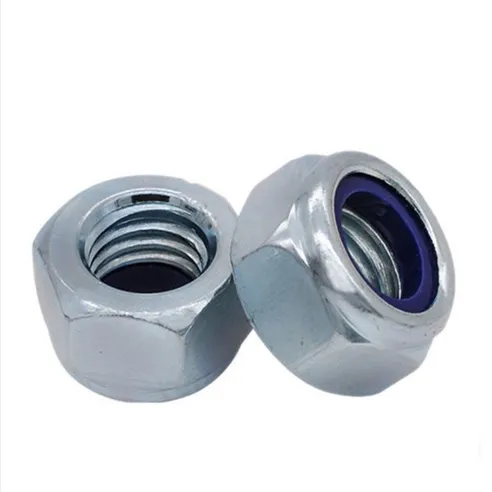China Expands Production of High-Strength Stud Bolts for Industrial Applications
Nov . 27, 2024 10:41 Back to list
China Expands Production of High-Strength Stud Bolts for Industrial Applications
The Significance of China Extending a Stud Bolt
In the fast-paced world of manufacturing and engineering, the details of production processes can significantly impact the performance and integrity of structures and machinery. One such detail is the stud bolt — a crucial component used in various applications, including construction, automotive, and industrial machinery. Recently, China's strategy in extending the production and use of stud bolts has garnered attention, raising questions about implications for global standards, trade, and technological innovation.
Stud bolts are threaded fasteners that primarily consist of a cylindrical rod with threads on both ends. These components are essential for securing two or more objects together, offering immense strength and reliability. The demand for high-quality stud bolts is rising globally, driven by infrastructure development, vehicle manufacturing, and energy generation. As countries invest heavily in these sectors, it becomes crucial to address the sourcing and production of essential fasteners like stud bolts.
The Significance of China Extending a Stud Bolt
The extension of stud bolt production in China comes with several noteworthy advantages. First and foremost, China benefits from an established supply chain. The integration of raw material suppliers, manufacturers, and distributors within its borders ensures that production processes can remain efficient and cost-effective. The availability of skilled labor and advanced manufacturing techniques further enhances productivity. This ecosystem allows for the rapid scaling of operations to meet increasing demand, a critical factor in today’s fast-evolving market landscape.
china extending a stud bolt

Moreover, China’s initiative is likely to have a lasting impact on global trade dynamics. As it standardizes and elevates the quality of its stud bolts, international companies may find themselves increasingly dependent on Chinese production. This shift could lead to a re-evaluation of supplier contracts and sourcing strategies as corporations look to secure reliable and high-quality fasteners. While this presents opportunities for China, it could pose challenges for manufacturers in other countries striving to compete on price and quality.
In addition to economic implications, there are environmental considerations tied to the production of stud bolts. Manufacturing processes often have environmental footprints, from resource extraction to production emissions. China has made strides toward sustainable manufacturing and is implementing eco-friendly practices within its industrial sector. As stud bolt production extends, ensuring that these practices are adopted and adhered to will be crucial for minimizing ecological impact.
From a technological perspective, the extension of stud bolt production signals an opportunity for innovation. As competition intensifies, manufacturers will likely invest in research and development to produce smarter, more efficient fasteners. This could involve exploring advanced materials, such as composites or alloys that provide improved durability and weight reduction. The data generated from these manufacturing processes could also lead to the implementation of smart technologies in tracking the performance and lifecycle of stud bolts.
The ramifications of China's strategic extension of stud bolt production extend far beyond its borders. Countries in emerging markets might look to China as a benchmark for modernization in their manufacturing processes. Simultaneously, this could spur other leading economies to enhance their own production capabilities and engage in collaborations to maintain competitive advantages.
In conclusion, China’s extension of stud bolt production represents a significant development in the global manufacturing landscape. It underscores the interconnected nature of modern economies and the need for high-quality components in infrastructure and machinery. The implications of this initiative are vast, influencing global trade patterns, environmental practices, and technological advancements. As stakeholders continue to navigate this evolving industry, the focus will not only remain on the expansion of production but also on sustainable practices and technological innovation to meet the complex demands of the future.
Latest news
-
High-Quality Panel Stud Bolt Reliable Panel Stud Bolt Factory & Suppliers
NewsJul.08,2025
-
High-Precision Fine Thread Locknuts Manufacturer & Supplier Custom Solutions
NewsJul.08,2025
-
PH Imperial Stud Bolt – High Strength Fasteners from Leading Supplier & Factory
NewsJul.07,2025
-
High-Quality Allen Wrench Bolts Leading Factory, Company & Suppliers
NewsJul.07,2025
-
Wholesale Ball Stud Bolt - High Quality Supplier & Factory Price Reliable Wholesale Ball Stud Bolt Company
NewsJul.06,2025
-
High-Strength Alloy Bolts Manufacturer & Supplier Quality Alloy Fasteners Factory
NewsJul.06,2025
